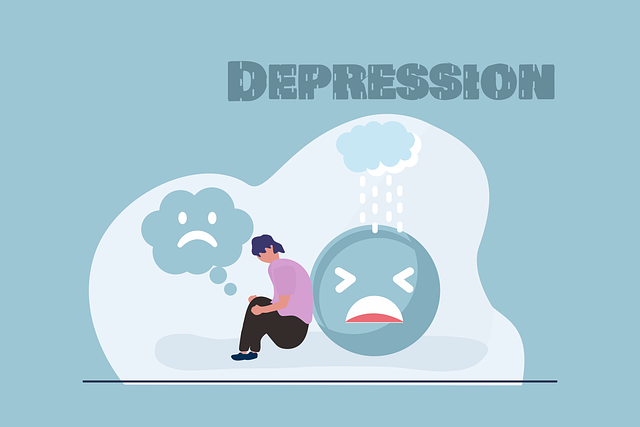In diverse Colorado Springs, cultural competency is vital for effective play therapy, ensuring therapists can support patients from various backgrounds. Organizations like the Stress Management Workshops Organization equip healthcare providers with tailored communication and crisis management skills to address unique needs. This approach improves patient outcomes, diagnoses, and treatment plans while aligning with Mental Health Policy Analysis and Advocacy goals. Interactive workshops, case studies, and role-playing scenarios empower providers, with success measured through surveys, focus groups, and health outcomes. This holistic approach revolutionizes play therapy services in Colorado Springs.
Healthcare provider cultural competency training is an essential component of modern medical practice. In today’s diverse society, understanding and respecting patient cultures is crucial for delivering effective care. This article explores the significance of cultural competency in healthcare, focusing on a case study of its impact in Colorado Springs Play Therapy. We also provide practical guidance on implementing and evaluating training programs to enhance cultural sensitivity among healthcare providers.
- Understanding Cultural Competency in Healthcare: A Necessity in Modern Practice
- The Impact of Training on Provider Biases and Patient Outcomes in Colorado Springs Play Therapy
- Implementing and Evaluating Effective Cultural Competency Programs for Healthcare Providers
Understanding Cultural Competency in Healthcare: A Necessity in Modern Practice

In today’s diverse society, cultural competency has become an indispensable aspect of healthcare delivery, especially in urban centers like Colorado Springs. Understanding and respecting different cultural backgrounds, traditions, and beliefs among patients is no longer a nice-to-have but a necessity. The concept goes beyond basic sensitivity; it involves effectively communicating, empathizing, and providing culturally tailored care to address the unique needs of each patient.
For therapists in Colorado Springs play therapy settings, this means being equipped to support individuals from various cultural contexts, including those seeking emotional healing processes, crisis intervention guidance, and stress management techniques. Organizations offering workshops on these topics, such as Stress Management Workshops Organization, play a vital role in equipping healthcare providers with the skills to navigate complex cultural scenarios, ensuring every patient receives the best possible care tailored to their specific needs.
The Impact of Training on Provider Biases and Patient Outcomes in Colorado Springs Play Therapy

In Colorado Springs, play therapy has emerged as a vital tool within the mental health landscape, offering unique benefits for both providers and patients. The impact of cultural competency training on healthcare provider biases and subsequent patient outcomes is noteworthy. By equipping therapists with the skills to navigate diverse cultural backgrounds, these training programs foster an environment where every client receives tailored, empathetic care. This approach is especially pertinent in a city like Colorado Springs, known for its diverse population, ensuring that play therapy remains accessible and effective across various cultural contexts.
The benefits extend beyond improved patient experiences; reduced biases among healthcare providers lead to more accurate diagnoses and personalized treatment plans. This, in turn, can enhance the effectiveness of mental health policies and initiatives, such as those focused on depression prevention or confidence-boosting strategies. A well-trained workforce is essential for advocating for equitable mental health services, aligning with the broader goals of Mental Health Policy Analysis and Advocacy.
Implementing and Evaluating Effective Cultural Competency Programs for Healthcare Providers

Implementing effective cultural competency programs is essential in healthcare, especially in diverse communities like Colorado Springs, where a range of cultural backgrounds and languages are represented. These initiatives go beyond surface-level awareness; they focus on empowering healthcare providers to deliver culturally sensitive care. Training should include interactive workshops, case studies reflecting local demographics, and role-playing scenarios to foster empathy and understanding. By engaging in these activities, providers can learn to navigate complex ethical dilemmas related to cultural differences, ensuring every patient receives personalized treatment.
Evaluating the success of such programs is crucial for continuous improvement. This involves assessing provider attitudes, knowledge, and behaviors before and after training through surveys or focus groups. Additionally, measuring patient satisfaction and health outcomes aligned with cultural competency goals provides tangible evidence of progress. Integrating these evaluations into regular training sessions allows for a dynamic learning environment, ensuring healthcare providers in Colorado Springs are equipped to offer the best care possible, catering to the unique mental wellness needs of their diverse communities, as highlighted in our Mental Wellness Podcast Series Production and Social Skills Training initiatives. This holistic approach, combined with advocacy for equitable mental health policies (Mental Health Policy Analysis and Advocacy), can revolutionize play therapy and other therapeutic services in the region.
Cultural competency training is a game-changer in healthcare, especially in diverse communities like Colorado Springs. As evidenced by studies on play therapy, such training can significantly reduce provider biases and improve patient outcomes. Implementing effective programs that focus on understanding cultural nuances and promoting empathetic interactions is crucial for fostering inclusive healthcare environments. By investing in these initiatives, we can ensure better care for all patients, reflecting the dynamic tapestry of our society.














